|
The Nigerian military has been used to restore order in Jos, a city in Nigeria’s Plateau State, since deadly clashes between Christians and Muslims erupted in 2001. The military was deployed because the police failed in their duty to protect citizens against the armed militias. Sallek Yaks Musa argues that using the army to quell the violence has actually caused more problems than it has solved.
The Sudanese people prevailed in their protracted protests against former president Omar al-Bashir. But there is still a long way to go before they achieve their demands of a civilian and democratic government. As Andrew Edward Tchie writes, there are still challenges ahead. These include dislodging the military’s hold on power, managing the fragmented security apparatus and dealing with rebel groups.
|
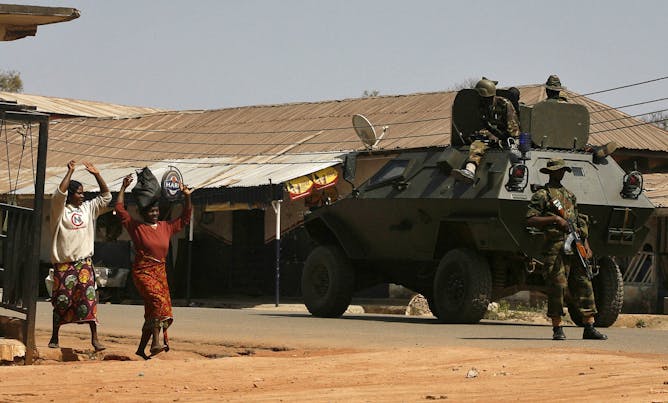
Soldiers patrol the Nigerian city of Jos, in the central Plateu State, in a bid to quell religious violence.
EPA/George Esiri
Sallek Yaks Musa, Stellenbosch University
In Nigeria, the government often uses the army to restore order and to keep the peace, largely because the police are unable to contain internal violent conflicts.
|
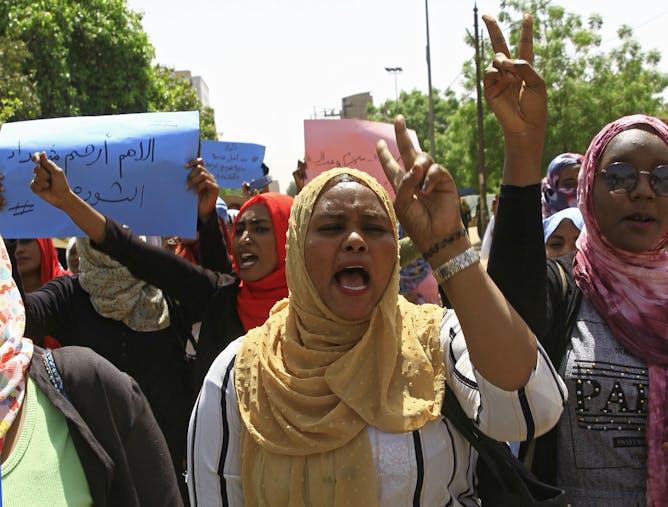
Sudanese protesters at a demonstration outside the army headquarters in Khartoum.
EPA/Stringer
Andrew Edward Tchie, King's College London
There are challenges that Sudan must overcome before power is transferred to its people.
|
Arts + Culture
|
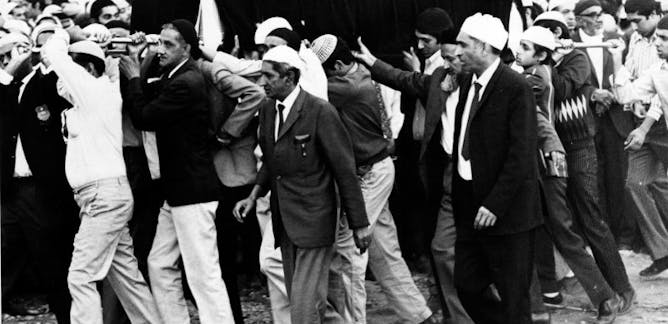
Kylie Thomas, University of the Free State
In South Africa's criminal justice system post-1994, the Timol case is the first to enact what can be properly understood as restorative justice.
| |
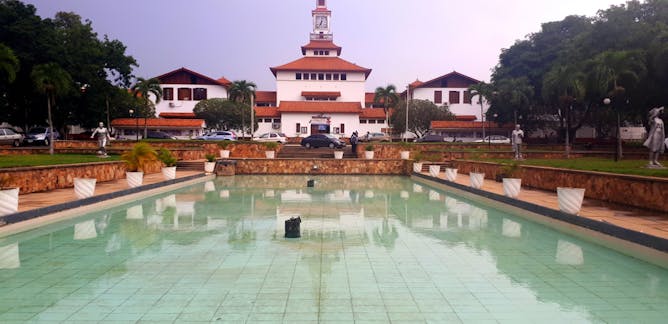
Ernest Aryeetey, University of Ghana
Gandhi was celebrated for the things he taught the world in his later years, through his writings, ideas and lifestyle. He was celebrated for seeking peace for all the peoples of the world.
|
|
|
From our international editions
|
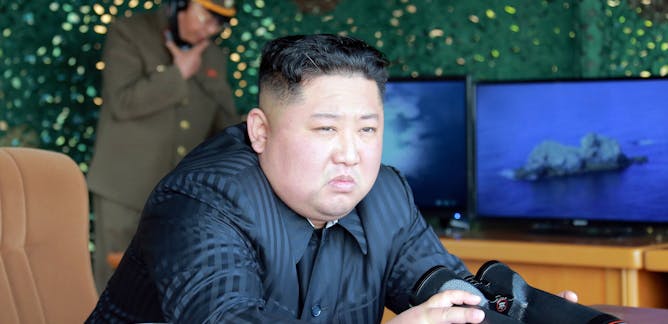
Benjamin Habib, La Trobe University
Every time North Korea needles the US with another provocation, it makes it harder for Donald Trump to mobilise the domestic support for a return to the negotiating table.
| |

Adewole S. Adamson, University of Texas at Austin
May is Skin Cancer Awareness Month, but the messaging around sunscreen for people with black skin needs to changes. Sunscreen has never been shown to reduce skin cancer risk in black people.
|
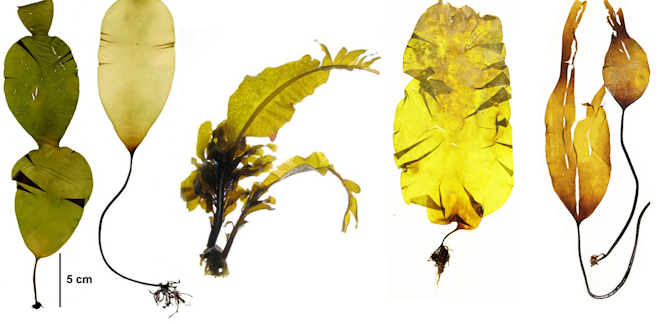
Karen Filbee-Dexter, Université Laval
With global warming, underwater Arctic kelp forests are proliferating, and might be a potential resource.
| |

Greg Wright, University of California, Merced
An economist explains why the US and Chinese governments are most likely to dig in their heels rather than find a compromise to end the costly trade conflict.
|
|
|
En français
|
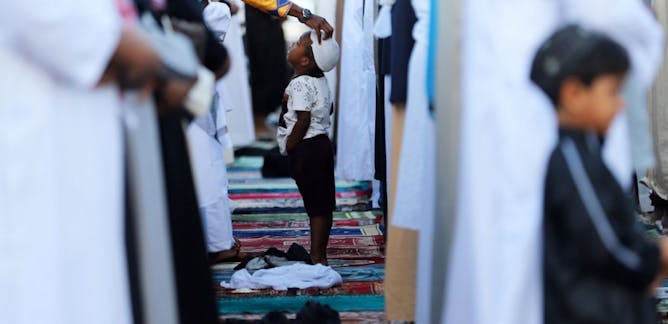
Anaïd Lindemann, Université de Lausanne
La présence musulmane en Europe est récente mais suffisamment implantée pour qu’elle en fasse désormais partie intégrante. Peut-on cependant parler d’un islam spécifiquement européen ?
| |

Jean-Pierre Husson, Université de Lorraine
Chargées de représentations, les vieilles forêts constituent par leurs caractéristiques uniques de véritables laboratoires du vivant.
|
|
|
En español
|

Patricia Mateo-Tomás, Universidad de Oviedo
La normativa europea trata de integrar la gestión de carroñas de ganado para alimentar a especies necrófagas como los buitres en las políticas de sanidad animal, pero aún queda camino por recorrer.
| |
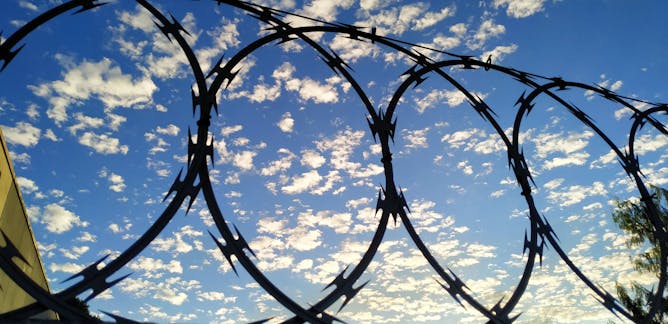
Juan Carlos Velasco, Instituto de Filosofía IFS-CSIC
No resulta creíble afirmar que la migración representa un peligro o una carga inasumible. En su conjunto, los inmigrantes devuelven al país receptor más de lo que reciben.
|
|
|